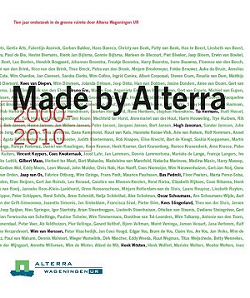IUCN/SSC Otter Specialist Group Bulletin

IUCN/SCC Otter Specialist Group Bulletin
©IUCN/SCC Otter Specialist Group
Volume 27 Issue 1 Pages 1 - 57 (January 2010)
 OSG Group Members News
OSG Group Members News
Previous | Contents |
Next
- Environmental Impact Assessment - Recommendations from the Cottbus workshop
- Interview with Hugh Jansman (in Dutch) about the book published to celebrate 10 years of Alterra, "Made by Alterra 2000 - 2010"
- Guyana bans gold mining in the 'Land of the Giants' - Press Release with Rob Pickles
- Skye group aids rare Congo otter - Grace Yoxon is helping the baby otter following Jan Reed-Smith's alert
- Sea Otter Status March 2010 - A year-end report on California's Sea otters based on 2009 population indicators, from Alison Ford and The Otter Project
- "Otter on my Shoulder" - Daphne Neville gave a talk in May to the Ashmolean Natural History Society in Oxford (the oldest natural history society in England) on 30 years experience in using tame otters in public education
- “In Celebration of Singapore’s Biodiversity: News, Views and Surprises!” - Sivasothi gave a public lecture in May, focussing on wildlife of Singapore including the healthy smooth-coated otter population
New Members of OSG
Thus far this year, we have welcomed 3 new members to the OSG: you can read more about them on the Members-Only pages.
Daniel Allen, United Kingdom: My research interests lie within cultural and historical geography with a focus on cultures of hunting, human-animal relations, nature-society interactions, and, landscape and identity. I have written a book ("Otter") on how the otter’s identity has been shaped by a variety of human interactions, which will be published in October 2010
Johanna Arrendal, Sweden: My interest in otters led to studies at university level, which resulted in a PhD in conservation genetics of L. lutra. Today I work as a consultant with focus on otters (surveys, national action plan, national survey techniques, fauna passages, talks and field excursions at university level as well as for the public).
Emmelianna Bujak, United Kingdom: I am using non-invasive techniques to investigate the reproduction of Eurasian otters. Working with several zoological collections in Europe, I quantify the reproductive hormones in spraints in order to characterize the female oestous cycle. I am also working with Cardiff University Otter Project in a study investigating whether reproductive information is communicated in otter spraint via scent.
Jorge Cárdenas-Callirgos, Peru: My research is about wildlife parasitology and zoonotic diseases, in specific about marine otter health. My aim is to collect fecal samples and diet information about the marine otter population of Peruvian coast. Then I can compare different populations and find out if parasites could be a bioindicator of the diet and population tags.
Carol Heap, United Kingdom: I have been involved with otters over 35 years in a 'hands on" capacity with 4 species of otter (Asian short claw, Eurasian, North American river and Giant otter) . Each year we care for wild born Eurasian otter cubs who have been abandoned or injured adult otters which are released back into the wild after rehabilitation.
Lorenzo Quaglietta, Italy: Following my innate passion and interest about otters, I've been studying them since 2004 for my undergraduate thesis in the Cilento and Vallo di Diano NationalPark (Southern Italy). Currently, I'm in the final phase of my PhD studies on the project "OPA - Otter Project in Alentejo"(Southern Portugal) of which I'm the author and coordinator. Here I've been interested to see if and how the variability in the resource availability during extreme Mediterranean droughts influence otters' space and habitat use. Following this issue, I'm currently interested on the potential impact of climate change on otters and considering to carry out a post-doc research on this topic
Lucy Spelman, USA: Otters have occupied a special place in my heart ever since I read Ring of Bright Water by Gavin Maxwell. There’s something very endearing about these athletic, powerful, and playful animals. As a young child, I didn’t understand that Maxwell’s (Asian small clawed) otter was a product of the wildlife trade. Nor did I have any idea of the potential damage done to an ecosystem by allowing non-native species to run wild. I was probably also confused about freshwater versus marine otters and how many different kinds there were of each. Sadly, few people know these basic facts even today. Toward this end, I write a blog about otters, based on the ongoing conservation program at Karanambu in Guyana. It’s called, “Helping Otters—Big and Small.” Here’s the link: http://savingotters.wildlifedirect.org/ For more about my background/bio, please see my website www.drlucyspelman.com
Jo Thompson, Democratic Republic of Congo: In 1995
I cared for a Congo Clawless Otter pup at my field site in
the Democratic Republic of Congo and was happily thrust into
the world of otter conservation. Since that experience,
I have continued to survey and raise awareness about Africa's
otters. In 2004 I produced and have widely distributed
in the DRCongo an educational pamphlet about Africa's otters. I
continue to work for their conservation and to gain information
about their status.